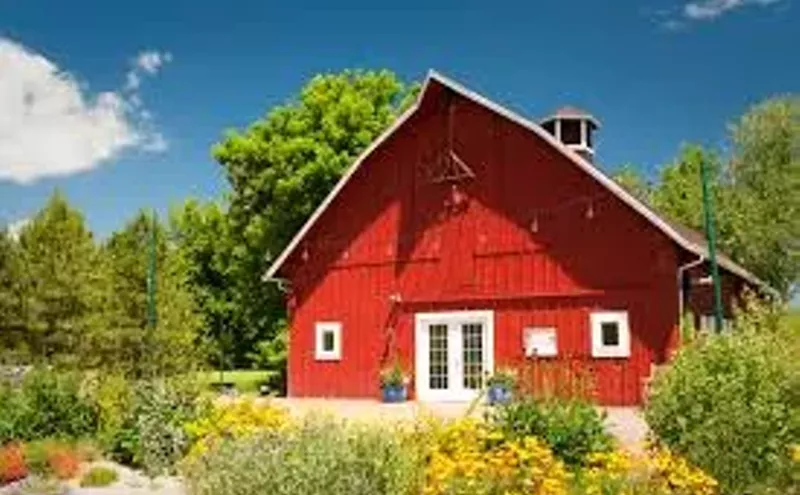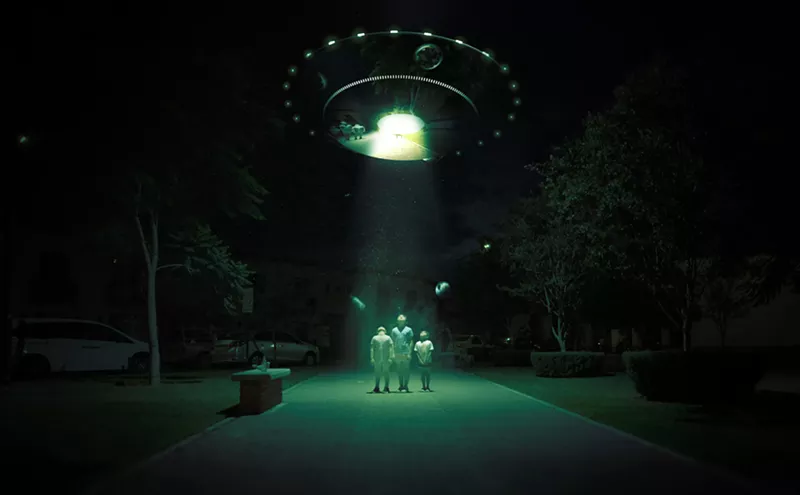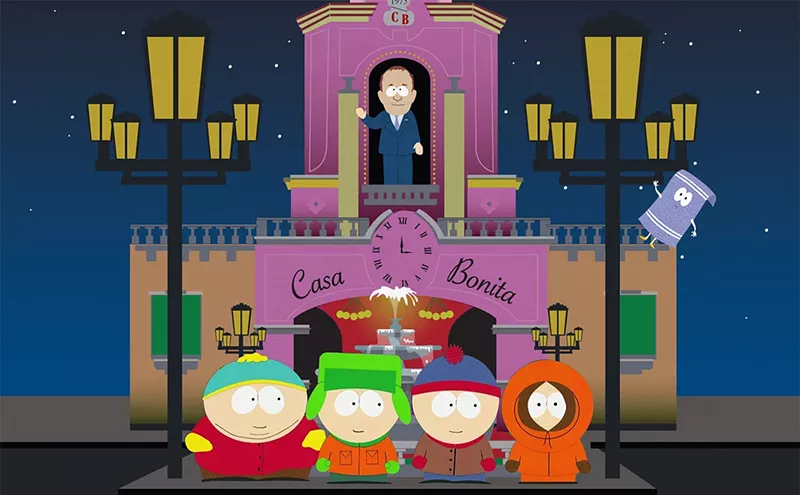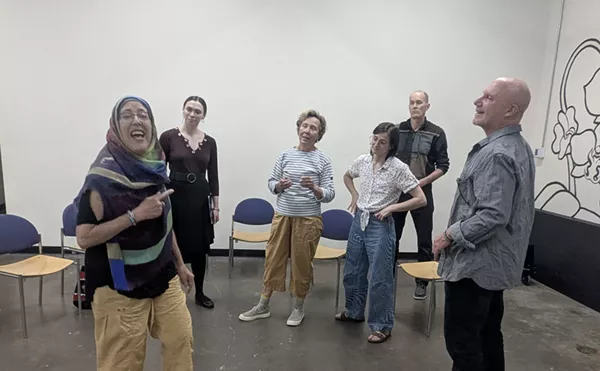The past few years have been a challenging period for Opera Colorado. Rising production costs, shifting audience behaviors and the lingering effects of the pandemic have tested the company's resilience.
"Production costs have increased by about roughly 40 percent, while fundraising has only increased by about 3 to 3.5 percent," says outgoing general and artistic director Greg Carpenter. "In response to that, we had to look at our budget and say, ‘Hey, the reality is that costs are skyrocketing, and they've been doing that coming out of COVID like everything else,’ so we're dealing with that."
To address these financial challenges, Opera Colorado implemented strategic changes such as reducing its mainstage productions from three to two for the foreseeable future, expanding its community presence to reach new audiences, and preparing for an upcoming leadership transition, as Carpenter will step down from the position he has held since 2007 at the end of this season. These strategies are intended to ensure the company's long-term sustainability while maintaining artistic excellence.
"From our perspective, we want to maintain high quality, continue our commitment to staging classical works, and then, in between those two productions, be more visible in the community so that we can build more new audiences to bring into the Opera Colorado world," Carpenter says. "By scaling back operations to two productions a year and increasing our community presence, we hope to get Opera Colorado back to producing a full season."
Against this backdrop, Opera Colorado has produced La Bohème, which Carpenter describes as "universal in many ways." Set in Paris, the opera follows a group of young artists navigating the complexities of love, friendship and poverty. At its heart is the love story between the poet Rodolfo and the seamstress Mimì, whose tragic fate underscores the opera’s exploration of human fragility and connection.
 "It is probably up there in the top two of best sellers in the opera industry, and that's because the story is so clear and identifiable," Carpenter says. "We've all experienced those times where you're living hand to mouth and trying to find your way in the world. That's why this piece continues to resonate, because there isn’t a time in your life that you can’t identify with this opera. Musically, it’s some of the most gorgeous music in all of opera. Even if you have never been to the opera, you will recognize it because it has been referenced in movies like Moonstruck. And, of course, Rent, the Broadway musical, is based on the exact same story as this, only transported into a more contemporary setting."
"It is probably up there in the top two of best sellers in the opera industry, and that's because the story is so clear and identifiable," Carpenter says. "We've all experienced those times where you're living hand to mouth and trying to find your way in the world. That's why this piece continues to resonate, because there isn’t a time in your life that you can’t identify with this opera. Musically, it’s some of the most gorgeous music in all of opera. Even if you have never been to the opera, you will recognize it because it has been referenced in movies like Moonstruck. And, of course, Rent, the Broadway musical, is based on the exact same story as this, only transported into a more contemporary setting."
While La Bohème marks a significant moment in the company's artistic calendar, it also serves as a reminder of the financial and operational challenges that Opera Colorado is still facing, as this was not intended to be the company's final performance of the season. Originally, the 2024-'25 season was to conclude with a fully staged production of Il Trovatore, but financial constraints led to its cancellation and replacement with a concert version and a gala concert.
The decision to reduce the number of mainstage productions from three to two this season reflects both local and industry pressures. According to its most recently filed 990 tax form for the fiscal year ending June 2023, Opera Colorado reported revenue of $5.55 million and expenses of $7.11 million, resulting in a $1.56 million deficit. Contributions made up 65.6 percent of total revenue, underscoring the importance of donor support. Although ticket sales and subscriptions remained steady, they could not offset rising production costs.
"There is this growing gap in budgets that is happening right now, and it is happening across the United States in opera companies and other performing arts organizations, and what we are trying to do is respond to that reality," Carpenter says. "Producing opera is expensive, and we always have to be aware that we can't raise ticket prices to the point where we price our patron out of it or a person who is inquisitive and wants to try opera. We have a finite inventory of tickets, so that means once you sell those tickets, we can't bring in any more revenue from that source, so it's really that fundraising piece that must increase and that takes time. It doesn't happen overnight."
 Despite these financial challenges, Opera Colorado’s education and community engagement programs have flourished. Director of Education and Community Engagement Cherity Koepke has played a pivotal role in reshaping the company’s approach.
Despite these financial challenges, Opera Colorado’s education and community engagement programs have flourished. Director of Education and Community Engagement Cherity Koepke has played a pivotal role in reshaping the company’s approach.
"When I took over as director, Greg Carpenter and I decided that we were going to make education and community engagement a pillar of the company," Koepke recalls. "It was going to be just as important as anything else that we did, and we've dedicated a significant amount of time, attention and financial resources to making that happen, so there is an educational component to just about everything we do."
She notes that declining access to field trips prompted the company to shift its focus to touring productions. "We used to have thousands of kids coming on buses to the Opera House to experience live opera," she says. "Now, teachers are struggling to even be able to get a bus, let alone afford it, so our programming shifted so that the bulk of our programming is now we go to them instead of them coming to us."
This approach has increased the company's reach, allowing it to engage approximately 25,000 students each year; in comparison, its mainstage season attracts approximately 15,000 patrons. “Our artists in residence go directly into schools and community venues to perform, but then they also perform on our main stage,” Koepke explains. “In a given season, we perform for more people through our education and community engagement programming than we do through our mainstage performances.”
This success in education and outreach serves as a possible foundation for the company's future as it navigates financial constraints and leadership changes.
 "The touring productions that we do are abridged and sung in English, because we don't take an orchestra with us everywhere we go," Koepke says. "We don't take a translation system everywhere we go, so we need to make it accessible and I think that is largely the future of opera in America. These kinds of abridged formats that meet people where they are rather than just having them in a fixed location and expecting people to come to them are the future. I don't think it can be just one size fits all anymore, because it doesn't make sense."
"The touring productions that we do are abridged and sung in English, because we don't take an orchestra with us everywhere we go," Koepke says. "We don't take a translation system everywhere we go, so we need to make it accessible and I think that is largely the future of opera in America. These kinds of abridged formats that meet people where they are rather than just having them in a fixed location and expecting people to come to them are the future. I don't think it can be just one size fits all anymore, because it doesn't make sense."
"We have to build our audience up by meeting them in their own community," agrees Carpenter, "rather than just sitting and expecting them to come to us."
This philosophy of outreach and engagement has characterized Carpenter’s leadership throughout his tenure at Opera Colorado. Carpenter, who joined the company in 2004 as the director of development before being promoted to his current position, is now considering his next steps when he leaves at the end of the 2024-'25 season.
"I’ve still got a little over three months before my final day, but yeah, everything feels a little bit bittersweet right now," Carpenter says. "Twice in the past three weeks, we've had an event where I've had to say, ‘This is the last time I do this,’ and it's hard a little bit. I've given twenty years of my life to the company, the first three as director of development, and then the last seventeen years as the general and artistic director. When you're in this industry, you give 100 percent or 150 percent, so your life really revolves around creating the art, connecting with the community and recruiting donors."
Reflecting on his tenure, he expresses pride in expanding Opera Colorado’s repertoire with productions such as Nixon in China and The Shining, as well as fostering collaborations with local arts organizations like the Colorado Symphony and the Denver Art Museum. As part of the leadership transition, the board of directors has formed a search committee to find the next general director.
Opera Colorado has already announced two shows for the 2025-'26 season: La Traviata and Madama Butterfly, both of which aim to build on the company's legacy while appealing to longtime supporters as well as new audiences.
As Carpenter prepares for his final bow, La Bohème holds special significance, serving as both a farewell and a symbol of the company’s enduring spirit.
“When I think about stepping away, it’s the people I’ll miss the most. I can still go to the opera, attend community and engage with Opera Colorado, but trying to maintain those relationships after you're gone is always a little bit more challenging," he says. "I’m excited to figure out what's next for me. I don't know what that is yet. I’m excited to see what the next chapter is for Opera Colorado and see what new life comes into the company with new leadership.”
La Bohème runs from Saturday, February 22, through Sunday, March 2 at the Ellie Caulkins Opera House in the Denver Performing Arts Complex. Tickets are $47 to $299; learn more at operacolorado.org.
"Production costs have increased by about roughly 40 percent, while fundraising has only increased by about 3 to 3.5 percent," says outgoing general and artistic director Greg Carpenter. "In response to that, we had to look at our budget and say, ‘Hey, the reality is that costs are skyrocketing, and they've been doing that coming out of COVID like everything else,’ so we're dealing with that."
To address these financial challenges, Opera Colorado implemented strategic changes such as reducing its mainstage productions from three to two for the foreseeable future, expanding its community presence to reach new audiences, and preparing for an upcoming leadership transition, as Carpenter will step down from the position he has held since 2007 at the end of this season. These strategies are intended to ensure the company's long-term sustainability while maintaining artistic excellence.
"From our perspective, we want to maintain high quality, continue our commitment to staging classical works, and then, in between those two productions, be more visible in the community so that we can build more new audiences to bring into the Opera Colorado world," Carpenter says. "By scaling back operations to two productions a year and increasing our community presence, we hope to get Opera Colorado back to producing a full season."
Against this backdrop, Opera Colorado has produced La Bohème, which Carpenter describes as "universal in many ways." Set in Paris, the opera follows a group of young artists navigating the complexities of love, friendship and poverty. At its heart is the love story between the poet Rodolfo and the seamstress Mimì, whose tragic fate underscores the opera’s exploration of human fragility and connection.

Set in Paris, La Bohème follows a group of young artists navigating the complexities of love, friendship and poverty.
Courtesy of Jamie Kraus Photography
While La Bohème marks a significant moment in the company's artistic calendar, it also serves as a reminder of the financial and operational challenges that Opera Colorado is still facing, as this was not intended to be the company's final performance of the season. Originally, the 2024-'25 season was to conclude with a fully staged production of Il Trovatore, but financial constraints led to its cancellation and replacement with a concert version and a gala concert.
The decision to reduce the number of mainstage productions from three to two this season reflects both local and industry pressures. According to its most recently filed 990 tax form for the fiscal year ending June 2023, Opera Colorado reported revenue of $5.55 million and expenses of $7.11 million, resulting in a $1.56 million deficit. Contributions made up 65.6 percent of total revenue, underscoring the importance of donor support. Although ticket sales and subscriptions remained steady, they could not offset rising production costs.
"There is this growing gap in budgets that is happening right now, and it is happening across the United States in opera companies and other performing arts organizations, and what we are trying to do is respond to that reality," Carpenter says. "Producing opera is expensive, and we always have to be aware that we can't raise ticket prices to the point where we price our patron out of it or a person who is inquisitive and wants to try opera. We have a finite inventory of tickets, so that means once you sell those tickets, we can't bring in any more revenue from that source, so it's really that fundraising piece that must increase and that takes time. It doesn't happen overnight."

Greg Carpenter, general and artistic director of Opera Colorado. is stepping down at the end of the 2024-'25 season.
Courtesy Opera Colorado/Matthew Staver
"When I took over as director, Greg Carpenter and I decided that we were going to make education and community engagement a pillar of the company," Koepke recalls. "It was going to be just as important as anything else that we did, and we've dedicated a significant amount of time, attention and financial resources to making that happen, so there is an educational component to just about everything we do."
She notes that declining access to field trips prompted the company to shift its focus to touring productions. "We used to have thousands of kids coming on buses to the Opera House to experience live opera," she says. "Now, teachers are struggling to even be able to get a bus, let alone afford it, so our programming shifted so that the bulk of our programming is now we go to them instead of them coming to us."
This approach has increased the company's reach, allowing it to engage approximately 25,000 students each year; in comparison, its mainstage season attracts approximately 15,000 patrons. “Our artists in residence go directly into schools and community venues to perform, but then they also perform on our main stage,” Koepke explains. “In a given season, we perform for more people through our education and community engagement programming than we do through our mainstage performances.”
This success in education and outreach serves as a possible foundation for the company's future as it navigates financial constraints and leadership changes.

Opera Colorado's education and community engagement programs reach approximately 25,000 students each year.
Courtesy of Jamie Kraus Photography
"We have to build our audience up by meeting them in their own community," agrees Carpenter, "rather than just sitting and expecting them to come to us."
This philosophy of outreach and engagement has characterized Carpenter’s leadership throughout his tenure at Opera Colorado. Carpenter, who joined the company in 2004 as the director of development before being promoted to his current position, is now considering his next steps when he leaves at the end of the 2024-'25 season.
"I’ve still got a little over three months before my final day, but yeah, everything feels a little bit bittersweet right now," Carpenter says. "Twice in the past three weeks, we've had an event where I've had to say, ‘This is the last time I do this,’ and it's hard a little bit. I've given twenty years of my life to the company, the first three as director of development, and then the last seventeen years as the general and artistic director. When you're in this industry, you give 100 percent or 150 percent, so your life really revolves around creating the art, connecting with the community and recruiting donors."
Reflecting on his tenure, he expresses pride in expanding Opera Colorado’s repertoire with productions such as Nixon in China and The Shining, as well as fostering collaborations with local arts organizations like the Colorado Symphony and the Denver Art Museum. As part of the leadership transition, the board of directors has formed a search committee to find the next general director.
"Opera Colorado’s board of directors has been diligently conducting a national search for our next general and artistic Director," says Director of Marketing and Communications Jennifer Colgan. "We are pleased to share that we have identified outstanding finalists who will continue through the interview process this month. Our goal is to make a final selection and extend an offer soon after this final stage of interviews."
Carpenter plans to be actively involved in the transition. "No question about that," he says. "I think it's important to have a process in place so that staff feels they are getting handed off, the company is getting handed off, the board is getting handed off and, at the same time, I'm available for the new incoming leader."
His advice to that leader is clear: "Take the time to get to know players in the company, key members of the community, and my fellow colleagues at the arts complex, the symphony, ballet and Denver Arts & Venues. Really get hold of the landscape and understand what Denver's about, then get to work from there."
Carpenter plans to be actively involved in the transition. "No question about that," he says. "I think it's important to have a process in place so that staff feels they are getting handed off, the company is getting handed off, the board is getting handed off and, at the same time, I'm available for the new incoming leader."
His advice to that leader is clear: "Take the time to get to know players in the company, key members of the community, and my fellow colleagues at the arts complex, the symphony, ballet and Denver Arts & Venues. Really get hold of the landscape and understand what Denver's about, then get to work from there."
Opera Colorado has already announced two shows for the 2025-'26 season: La Traviata and Madama Butterfly, both of which aim to build on the company's legacy while appealing to longtime supporters as well as new audiences.
As Carpenter prepares for his final bow, La Bohème holds special significance, serving as both a farewell and a symbol of the company’s enduring spirit.
La Bohème runs from Saturday, February 22, through Sunday, March 2 at the Ellie Caulkins Opera House in the Denver Performing Arts Complex. Tickets are $47 to $299; learn more at operacolorado.org.












